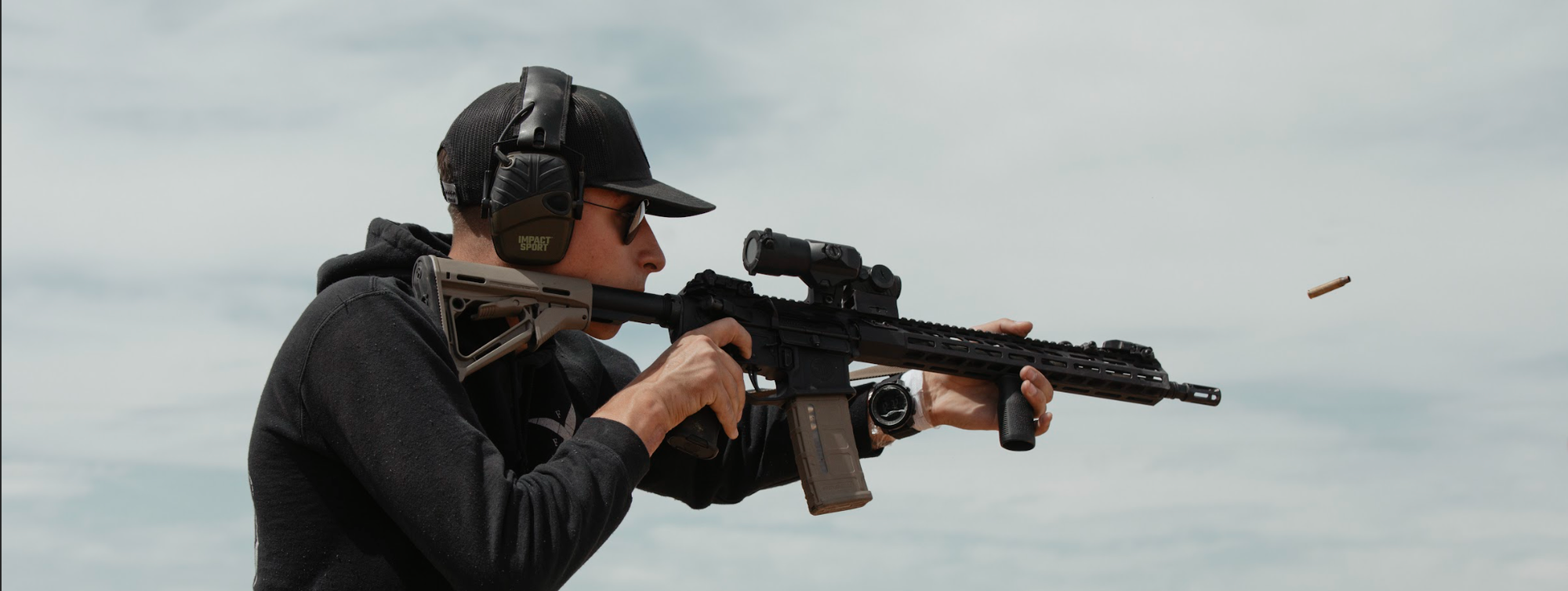Recovering from a Bad Competition Stage
Competing in a shooting match is as much a mental game as it is a test of skill. Whether you’re a seasoned competitor or a first-timer, a bad stage can shake your confidence and threaten to derail your performance.

From Slow Runs to DQs
Competing in a shooting match is as much a mental game as it is a test of skill. Whether you’re a seasoned competitor or a first-timer, a bad stage can shake your confidence and threaten to derail your performance. From a slow run that costs you points to a disqualification (DQ) that ends your match, the severity of the screw-up can feel amplified by the time, money, and effort invested in training and travel. But no matter how bad it feels, recovery is possible and it’s a skill that translates far beyond the range. Here’s an in-depth guide to bouncing back, with practical steps to regain control, learn from mistakes, and keep your head in the game.
The Weight of a Bad Stage
A poor stage can sting, and the pain often scales with the stakes. If you've spent hundreds or thousands of dollars on training, gear, travel, and match fees, a slow stage or a DQ can feel like a personal betrayal. A slow stage might cost you a top placement, while a DQ, whether from a safety violation, equipment failure, or procedural error, can end your match entirely. The more you've invested, the louder that screaming voice in your head becomes, telling you you've failed or wasted your time and money. But here's the truth: no one else cares as much as you do. With rare exceptions, your fellow competitors and Range Safety Officers (RSOs) are focused on their own performance or the smooth operation of the match. Self-mastery is the key to recovery, and it starts with silencing that inner critic.
The Community Factor: Don’t Burn Bridges
Shooting competitions rely on competitors to reset stages, pasting targets, resetting steel, or repositioning props. This collective effort keeps matches running smoothly. If you let a bad stage sour your attitude, you might be tempted to skip helping, sulk, or take out your frustration on RSO's or fellow shooters. This is a fast track to a bad reputation. A crappy attitude or lashing out won't just make you unwelcome at future matches, it can alienate you from a community that thrives on camaraderie and mutual respect. Even after a DQ, stay engaged, help reset, and maintain a positive demeanor. Your ability to recover gracefully will earn you more respect than a perfect score ever could.
Steps to Recover from a Bad Stage
Whether your stage was a minor hiccup or a catastrophic DQ, these steps will help you regain control and come back stronger. The process mirrors strategies for handling setbacks in everyday life, from work stress to personal challenges.
1. Acknowledge and Analyze
Don’t bury your head in the sand. Recognizing a bad stage is the first step to moving past it. Take a moment to identify what went wrong without spiraling into self-criticism. Was it a technical error, like poor trigger control or a missed target? A mental lapse, like rushing under pressure? Or an external factor, like wind or untested ammunition? One common culprit is inconsistent ammo, especially when availability or travel logistics force you to use untested rounds. As an AmmoSquared member, you can avoid this pitfall by ensuring a steady supply of competition-grade ammunition, shipped directly to your match location for peace of mind.
● Pro Tip: Have another competitor film your stage with your phone or after the stage, jot down a quick note about what happened. This helps you process without dwelling and gives you data to analyze later.
● Life Lesson: In life, acknowledging mistakes, whether a work blunder or a personal misstep, allows you to learn and grow instead of repeating the same errors.
2. Mental Reset
That screaming voice in your head? It's loud, but it's not in charge. Shake off the negative emotions by physically moving, roll your shoulders, take deep breaths, or walk it off. Refocus on the process: your grip, stance, sight picture, and trigger press. Visualize yourself crushing the next stage, picturing each step with clarity. Replace thoughts like "I'm screwing this up" with "I've trained for this, and I'm ready." A mental reset is like rebooting a computer, it clears the glitches and gets you back to baseline.
● Pro Tip: Develop a quick mental reset ritual, like a specific phrase or breathing pattern, to use between stages.
● Life Lesson: In high-pressure situations, like a tough meeting or family conflict, resetting your mindset helps you stay calm and focused on what’s next.
3. Physical Adjustments (If Needed)
If your analysis points to technical issues, address them promptly. Review your shooting form: Are you gripping the firearm consistently? Is your stance stable? If you’re off, return to fundamentals with dry-fire drills or basic live-fire practice to rebuild confidence. If you’re feeling overwhelmed or fatigued, take a short break to hydrate, eat, or stretch. Physical fatigue can amplify mental errors, so listen to your body.
● Pro Tip: If ammo was the issue, test your rounds well before the match. AmmoSquared lets you ship consistent, high-quality ammo ahead of travel, so you’re never caught off guard.
● Life Lesson: Just as you adjust your shooting form, adapting your approach to challenges, like tweaking a work process or fitness routine, keeps you on track.
4. Pre-Shot Routine
A consistent pre-shot routine is your anchor in a storm. It might include checking your gear, visualizing the stage, or taking a specific number of breaths. Trust this routine, even when anxiety creeps in. It’s your roadmap to consistency, helping you block out distractions and perform under pressure. Practice it during training so it becomes second nature.
● Pro Tip: Keep your routine simple and repeatable, like “stance, grip, breathe, aim, press.”
● Life Lesson: Routines ground us in chaos. A morning ritual or pre-meeting checklist can help you tackle daily challenges with confidence.
5. Learn from the Experience
A bad stage isn't a failure, it's a lesson. Even a DQ can teach you about safety, rule awareness, or equipment reliability. Identify one or two areas for improvement and make a plan to address them in training. Seek advice from a coach or experienced shooter; their perspective can uncover blind spots. Embrace the mindset that every competitor, from novice to pro, has off days. What separates the best is their ability to learn and move forward.
● Pro Tip: After the match, review your notes and discuss the stage with a mentor to gain actionable insights.
● Life Lesson: Setbacks in life, missed deadlines, failed projects, are opportunities to grow. Reflect, adjust, and keep moving forward.
When All Else Fails: Ice Cream Therapy
Sometimes, despite your best efforts, the match just doesn’t go your way. If you’re DQ’d or your performance tanks, it’s okay to step back and treat yourself. Grab a Blizzard or a cone, a long standing tradition after a DQ (get it?), and let the disappointment fade. This isn’t giving up; it’s giving yourself permission to reset and come back stronger. The range will always be there for your next shot.
Why This Matters Beyond the Range
Mastering recovery in shooting competitions builds resilience that applies to everyday life. The ability to acknowledge mistakes, reset mentally, adjust physically, stick to routines, and learn from setbacks is universal. Whether you’re navigating a bad day at work, a personal conflict, or a financial misstep, these skills help you stay composed, adapt, and keep pushing forward. Shooting teaches you to quiet the screaming voice in your head, and that self-mastery is a gift that lasts a lifetime.
Final Thoughts
A bad stage doesn't define you as a shooter or a person. The money and time invested amplify the stakes, but they also make recovery sweeter. Stay engaged with the community, lean on your training, and trust your ability to bounce back. With practice, recovering from a slow stage or even a DQ becomes second nature, and the lessons you learn will serve you on and off the range.
Now go shoot your next stage, and if it doesn't go as planned, you know where to find the ice cream.

